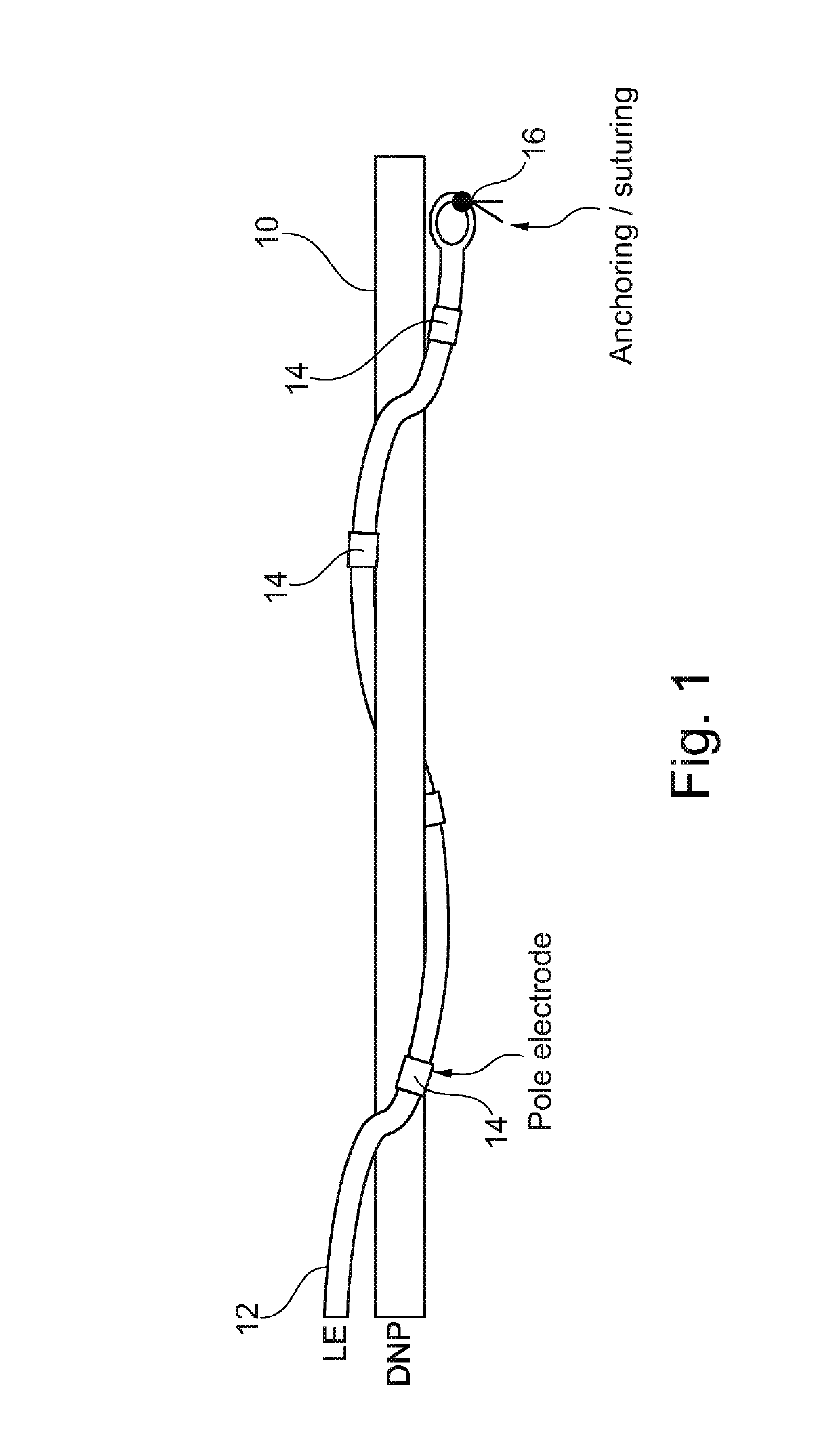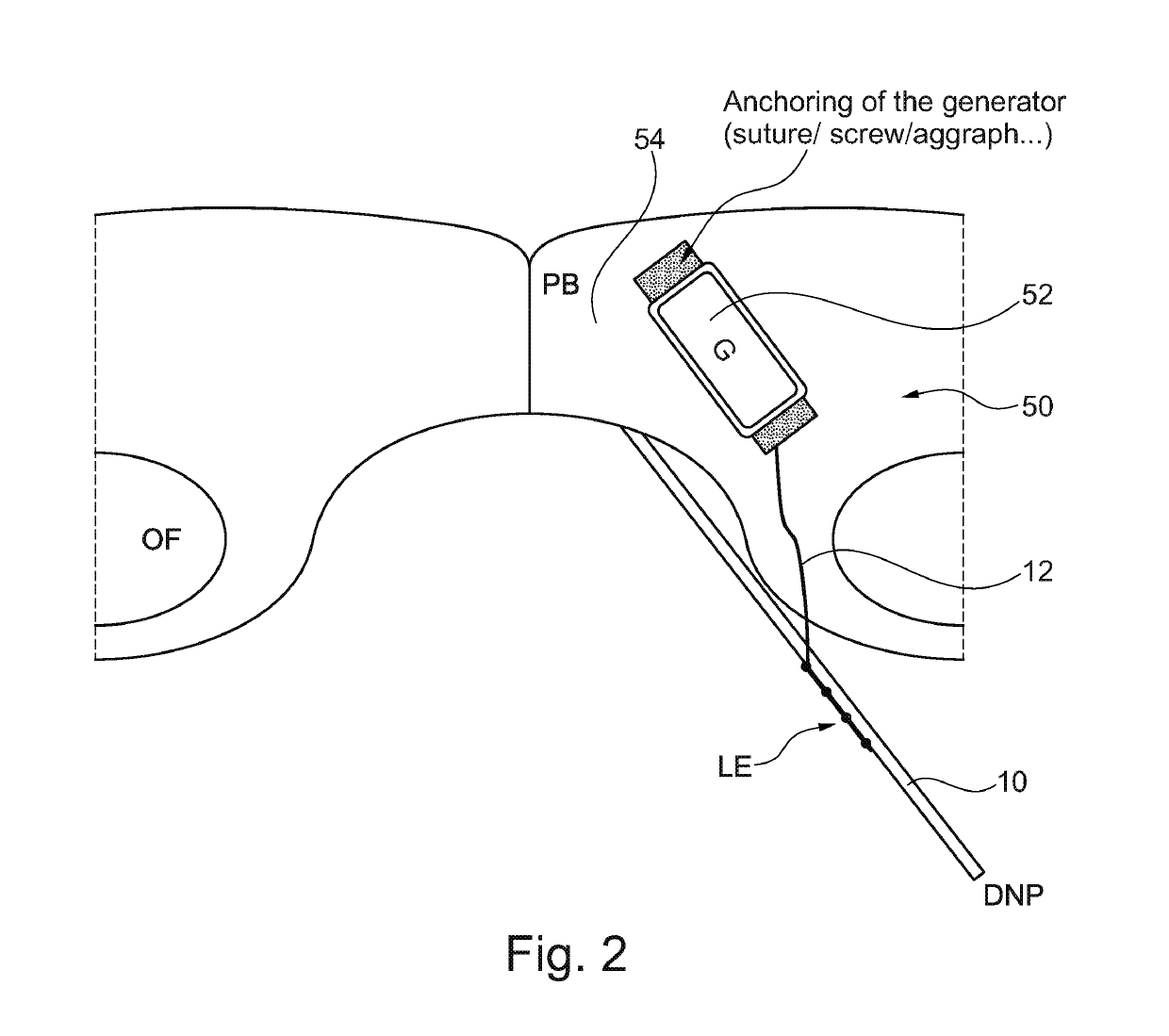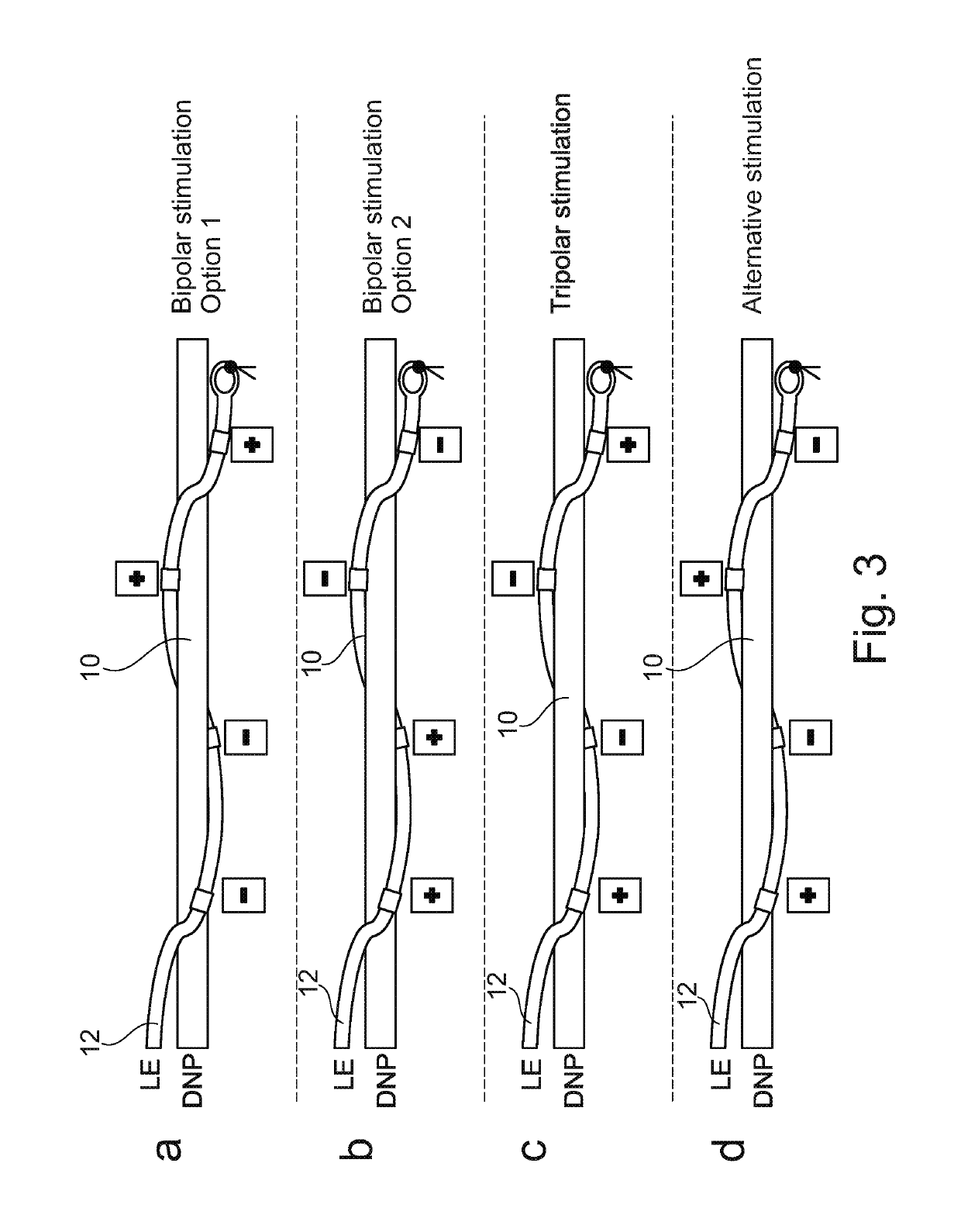Implantable neurostimulator and methods for implanting and using same
a neurostimulator and implantable technology, applied in the field of implantable neurostimulators and methods for implanting and using same, can solve the problems of difficult transition from one gravity field to the other, unfriendly place, and many risks, and achieve the effect of longer life and better performan
- Summary
- Abstract
- Description
- Claims
- Application Information
AI Technical Summary
Benefits of technology
Problems solved by technology
Method used
Image
Examples
Embodiment Construction
[0059]The invention relates to methods using laparoscopically implanted neurotransmitters to stimulate a nerve or nerve plexus and thereby cause muscle movements and / or contractions which can exercise the muscle and thereby prevent muscle atrophy and other adverse conditions. This method has use in numerous settings, including prevention of muscle atrophy in individuals who must endure long periods of inactivity, for example during long missions in space; prevention of muscle atrophy and decubitus in individuals who have injuries such as SCI which prevent movement; and also as a prophylactic against aging in any other conditions. Such methods also are believed to prevent osteoporosis and adverse conditions accompanying osteoporosis, again in similar settings as set forth above. For an individual on a prolonged mission in space or other microgravity environment, the present method not only prevents muscle atrophy, but also prevents bone loss or osteoporosis, which is also believed to...
PUM
 Login to View More
Login to View More Abstract
Description
Claims
Application Information
 Login to View More
Login to View More - R&D
- Intellectual Property
- Life Sciences
- Materials
- Tech Scout
- Unparalleled Data Quality
- Higher Quality Content
- 60% Fewer Hallucinations
Browse by: Latest US Patents, China's latest patents, Technical Efficacy Thesaurus, Application Domain, Technology Topic, Popular Technical Reports.
© 2025 PatSnap. All rights reserved.Legal|Privacy policy|Modern Slavery Act Transparency Statement|Sitemap|About US| Contact US: help@patsnap.com



